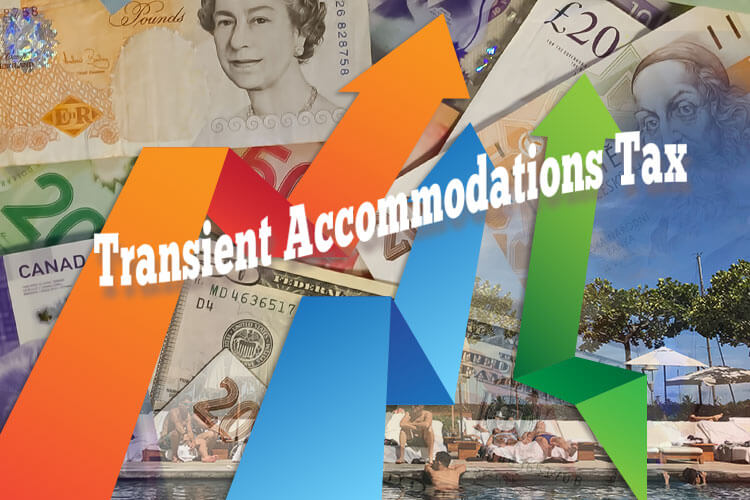The Transient Accommodations Tax

Hawaii remains world-class for the vacation-seeking public, especially after the COVID lockdowns of 2020. Interestingly, we have observed the most significant influx of east coast and midwest visitors to the resorts we remember in the last 20 years. These visitors, combined with the typical west coast tourists, are causing 90% occupancies, packed restaurants, and the usual island activities like helicopter and boat tours.
The Transient Accommodations Tax scheme, which funds the general State budget, is changing for those of you who own Vacation Rental Properties here in Hawaii. Hawaii state lawmakers passed HB 862 CD1 which would divert to the State government’s general fund (GF) $103 million from the State’s transient accommodation tax collections (TAT) that otherwise would have gone to the counties. The tax is 10.25% charged and collected for all vacation rental accommodations six months or less, including Hotels and Short Term Vacation Rentals. Instead, the State will keep 100% of the tax collected and allow each County to charge and collect up to an additional 3%, which they can control.
The change will have the effect of driving up the cost of a guest’s stay an additional 3% in addition to the 4.712% General Excise tax and the State’s 10.25% TAT. I suspect each County will collect the maximum allowed 3%. The total will most probably be close to 18% of total taxes paid by your guests when renting your real property. A typical vacation rental within the Mauna Lani resort starts at $400/night for a three-bedroom property. Exit cleaning charges can be $400+. The combined total for a seven-night stay, including taxes and cleaning charges, could exceed $3700.00. Some owners charge additionally for power usage and resort fees on top of the rental costs.
Real estate sales are a function of vacation rental visitor quantities, and driving up the price of renting will not necessarily help. The County’s enforcement of Short Term Vacation Rental zones also drives resort property prices up to all-time levels. In my opinion, this is a positive development for resort properties that remained undervalued in the past, as buyers bought homes in what are now illegal areas/zoning for vacation rentals. Higher sales prices tend to drive vacation rental nightly charges up as owners expect a proportionately higher rental rate the more they pay for a property.
Higher vacation rental costs and higher real estate purchase prices will keep vacation rental prices high for the foreseeable future. We will see how the economics shake out over the next few years.
Click here for a University of Hawaii Economic Research Organization article that discusses various aspects of this important tax change:
Click here to search properties on my WEBSITE.
Click here to contact Rick.




